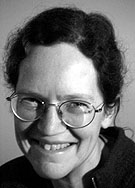
Julia Angster
Ronald G. Asch
Jan C. Behrends
Hartmut Berghoff
Tim Blanning
Kai Brodersen
Susanna Burghartz
Sebastian Conrad
Eckart Conze
Christoph Cornelißen
Astrid M. Eckert
Josef Ehmer
Jacques Ehrenfreund
Joachim Eibach
Andreas Fahrmeir
Norbert Finzsch
Etienne François
Peter Funke
Patrick J. Geary
Martin H. Geyer
Dieter Gosewinkel
Abigail Green
Rebekka Habermas
Johannes Helmrath
Manfred Hettling
Gerhard Hirschfeld
Hartmut Kaelble
Wolfram Kaiser
Martina Kaller-Dietrich
Friedrich Kießling
Jürgen Kocka
Martin Kohlrausch
Birthe Kundrus
Karl Christian Lammers
Achim Landwehr
Ursula Lehmkuhl
Chris Lorenz
Mischa Meier
Jürgen Miethke
Pierre Monnet
Olaf Mörke
Igor Narskij
Dietmar Neutatz
Wilfried Nippel
Paul Nolte
Marek Jan Olbrycht
Ilaria Porciani
Stefan Rebenich
Folker Reichert
Frank Rexroth
Dominic Sachsenmaier
Adelheid von Saldern
Birgit Schäbler
Tanja S. Scheer
Wolfgang Schmale
Helga Schnabel-Schüle
Petra Schulte
Hubertus Seibert
Hannes Siegrist
Barbara Stollberg-Rilinger
Benedikt Stuchtey
Birgit Studt
Claudia Tiersch
Stefan Troebst
Bärbel Völkel
Beate Wagner-Hasel
Michael Wildt
Michael Zeuske
Claudia Zey
| | Prof. Dr. Mary FulbrookUniversity College London LebenslaufGeboren 1951, Cardiff, Wales. Aufgewachsen in Cardiff und Birmingham. Schulabschluss in 1969. Studium:Archaeology and Anthropology, Social and Political Sciences, Comparative History;
Cambridge University, 1970-73
Harvard University, 1973-79 Abschlüsse:MA (Cantab.), AM, PhD (Harvard) Thema der PhD thesis:Piety and Politics: Religion and the Rise of Absolutism in England, Württemberg and Prussia Tätigkeiten an Hochschulen oder Forschungseinrichtungen:Research Fellow, New Hall, Cambridge, 1979-1982
Research Associate, King's College London, 1982-83
Lecturer in German History, UCL, 1983-91;
Reader in German History, UCL, 1991-95;
Professor of German History, and Head of the German Department, UCL, 1995- Zurückliegende Forschungsschwerpunkte
Religion and politics in England and Germany, 16th - 18th centuries
Twentieth-century German history, particularly GDR
National identity
Historical and social theory
[Siehe Publikationsliste]
Aktuelle Forschungsschwerpunkte
1. Sozialgeschichte der DDR (Buch für Yale University Press; 2004)
2. AHRB-sponsored collaborative project on 'The "Normalisation of Rule"? State and Society in the GDR, 1961-79" and comparisons with state and society in the Third Reich (Abschluss 2006)
3. A long-term project on aspects of the "civilising process" and constructions of individual and community in western Europe 1200-2000
Wichtige Monographien oder Herausgeberschaften- Piety and Politics: Religion and the Rise of Absolutism in England, Württemberg and Prussia (Cambridge University Press, 1983)
- A Concise History of Germany (Cambridge University Press, 1990; reprinted 1990, 1991; updated edition, 1992; reprinted frequently thereafter; revised edition due 2003); Hungarian translation, Németország Története (Maecenas, 1993); Spanish translation, Historia de Alemania (CUP 1995); Swedish translation, Tysklands Historia (Historiska Media, 1998); Korean translation (Kaemagowon, 2000); Chinese translation (Annual Rings, 2002); Romanian translation O Scurta Istore a Germaniei (Editura Institutul, 2002); currently being translated into Japanese (Bushosha), Polish (Zysk iS-ka), Greek (Kataptro)
- The Divided Nation: Germany 1918-1990 (Fontana, 1991; OUP, New York, 1992); Italian translation, Storia della Germania 1918-1990: La Nazione Divisa (Mondadori, 1993); second edition, A History of Germany 1918-2000: The Divided Nation (Blackwells, 2002)
- The Two Germanies 1945-1990: Problems of Interpretation (Macmillan, 1992); second edition, Interpretations of the Two Germanies, 1945-1990 (Macmillan, 2000)
- Anatomy of a Dictatorship: Inside the GDR, 1949-89 (Oxford University Press, 1995)
- German National Identity after the Holocaust (Polity Press, 1999, reprinted 2001); Hungarian translation, A német nemzeti identitás a holokauszt után (Helikon Kiadó, 2001)
- Historical Theory (Routledge, 2002)
- The People's State: East German Society from Hitler to Honecker (Yale University Press, 2005)
Hrsg:- Hrsg, National Histories and European History (UCL Press, 1993)
- Hrsg, with David Cesarani, Citizenship, Nationality and Migration in Europe (London: Routledge, 1996)
- Hrsg., German History since 1800 (Arnold, 1997); revised edition, Twentieth-century Germany: Politics, Culture and Society 1918-1990 (Arnold, 2001)
- Hrsg., The Short Oxford History of Europe, 1945 - 2000 (Oxford University Press, 2000); Spanish translation, Historia de Europa Oxford: Europa desde 1945 (Barcelona: Editorial Crítica, 2002)
- Hrsg., with Martin Swales, Representing the German Nation (Manchester University Press, 2000)
- Hrsg., German History (the Journal of the German History Society), 1984-94
Fragen zur historischen Forschungslandschaft und zu aktuellen Debatten2. a) Wie kamen Sie zur Geschichtswissenschaft? Was hat Sie motiviert, Geschichte zu Ihrem Beruf zu machen? In general: interest and enjoyment; fascination with the varieties of human society and culture, the difference of the past, and the emergence of different notions of what it is to be human and how best to organise society and politics.
With respect to German history in particular: the extraordinary contrast between the depths of the Holocaust, on the one hand, and a fascination with aspects of the country, the culture (Goethe, Bach) and the language, on the other. My mother, for both political and 'racial' reasons, left her native Berlin for Britain in 1936. She married a Canadian scientist (and pacifist), did not teach me German as a child, and I had to learn German as a second language at school. I both loved visiting Germany, and found it a deeply problematic place - thus wanted to explore and understand its history and culture more thoroughly.
As a Beruf: I hugely enjoy teaching, research and writing and am fortunate to be paid to do these things. 2. b) Die Geschichtswissenschaften haben in den zurückliegenden Jahrzehnten zahlreiche Erweiterungen und Neuorientierungen der Frageansätze und Forschungsperspektiven erfahren. Welche halten Sie für die interessanteste und folgenreichste? The renewed explicit interest in theoretical questions, partly provoked by post-modernist challenges. The expansion of traditional political narratives by the newer combination of social / societal / structural approaches and cultural analyses - in other words, the overcoming of entrenched perspectival paradigms. Debates on the relations between historical representations and 'the past as it actually was", also on the relationships between politics and historical interpretations. See my recent book on Historical Theory (2002) for a much longer version of this! 2. c) Sehen Sie Forschungsfelder, denen man künftig mehr Aufmerksamkeit widmen sollte? The interaction of social/structural history and political/narrative history; comparative history, long view history; the interplay between national paradigms and wider (transnational) trends; terrorism and the international order. |